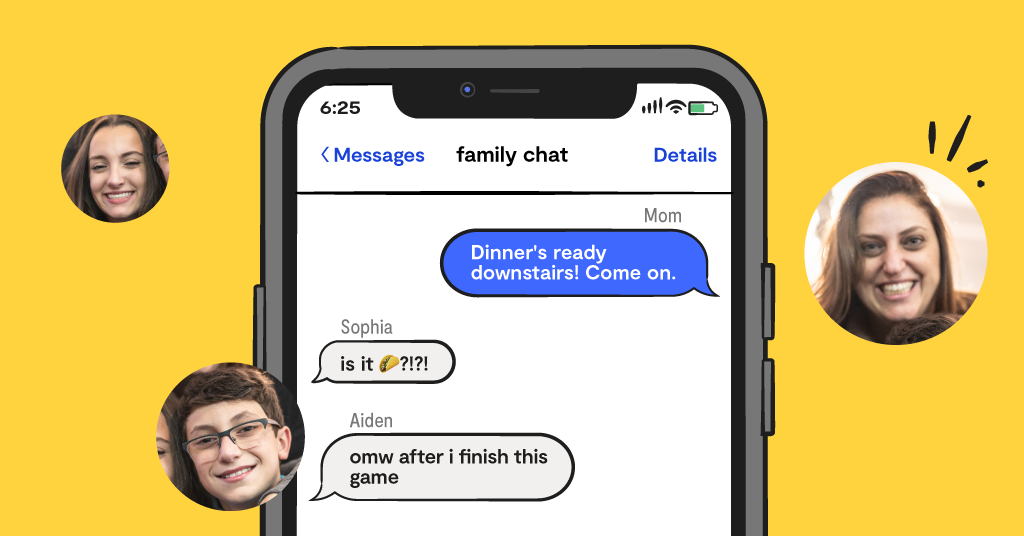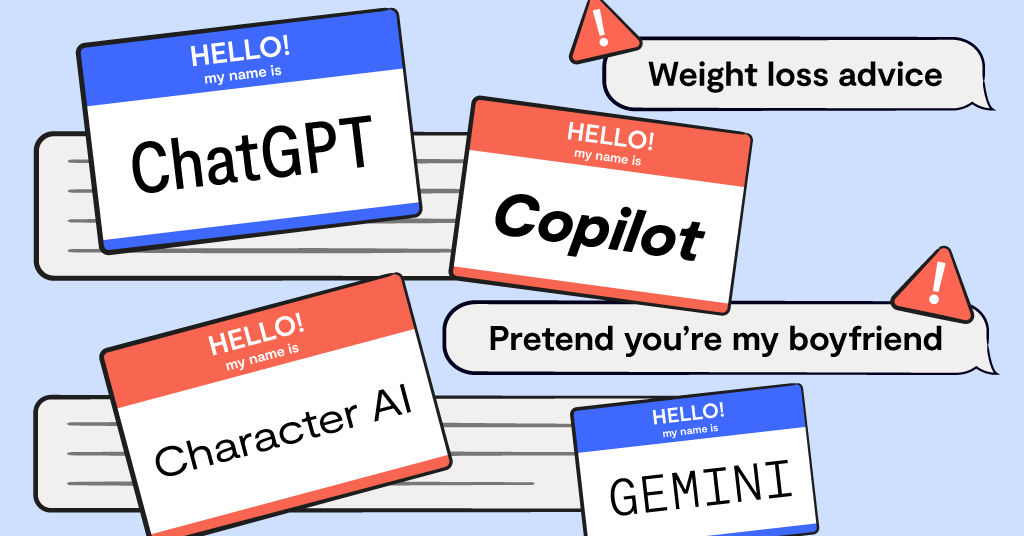
Today is Safer Internet Day, and Bark is proud to join people and organizations around the world in promoting the safe and positive use of digital technologies among children, tweens, and teens. In honor of this year’s theme, “Together for a better internet," we’ve compiled some conversation starters around the subject of digital citizenship.
Along with the founders of Safer Internet Day, we believe that every child should be empowered to use technology responsibly, respectfully, critically, and creatively. It’s our hope that the following lessons will inspire heartfelt discussions about how your family is using the technology in their life — and how they can use it even more wisely.
People Online Aren’t Always Who They Say They Are
One of the first conversations you probably had with your child when they first got online was about the people on the internet who might try to trick them by lying about who they really are. There were people like this back when we were kids on AOL Instant Messenger, and it’s still true today on TikTok, Instagram, and countless other apps and platforms. You may have had the talk about online predators with your kids, but there are also new ways that people are fooling kids online. Thanks to advances in technology, fictitious people and personas now exist alongside real teens and tweens.
Some, like CGI influencers, may simply confuse kids and promote unrealistic beauty standards. Others are more harmful, as in the case of deep fakes. These are computer-generated images that can incorporate real-life photos and videos. For example, a deep fake can be made by superimposing a random, real-life person’s head over a porn star’s naked body. Deep fakes have the ability to ruin reputations and make children victims of sextortion, so it’s important to talk to your kids about this emerging technology.
The Things You Say Online Have Power
Sending a text, tweeting a quick reply, or leaving a comment on someone’s Instagram post can take just a few seconds, but the ramifications of these messages may last for years. Digital communications leave an (electronic) paper trail that can be copied, screenshotted, and shared far and wide.
What your child puts out into the digital world becomes an extension of who they are and what they stand for, whether they mean for it to or not. And the things they say to other people have the power to hurt those people if they’re not careful. Even if your child hasn’t been cyberbullied, talk to them about what it looks like and what they can do if they see it happen to someone else.
In 2019, 76% of tweens and 78% of teens that use Bark experienced cyberbullying as a bully, victim, or witness. Even though the teasing and provocation happen online, victims of cyberbullying often experience low self-esteem, loneliness, and feelings of worthlessness, and these feelings can lead to serious issues in real life like depression and suicidal ideation.

Technology Can Be a Useful Tool
Being a good digital citizen doesn’t just mean never saying anything negative online. Technology is such a major part of our lives today that kids should also strive for positive and constructive online interactions and activities. There are, of course, potential dangers when it comes to technology, but your family’s discussions shouldn’t only focus on negative situations — there are many great things about technology, too.
Technology can help families stay in touch across long distances (grandparent FaceTime sessions, anyone?), assist your kids with their homework, and even make life easier with things like smart speakers and interactive calendars. Devices like smartphones are here to stay, so be sure your child knows how to live and thrive with them — it will serve them well as they grow up and enter adulthood.
It’s Never Your Child’s Fault If an Adult Makes Them Feel Uncomfortable Online
Despite all of the safety conversations and precautions your family may have, kids can still end up in uncomfortable situations online. The types of adults who target kids can be master manipulators and will often know exactly how to draw children into a conversation. But it's important to remind your child that even if they initiate a conversation with an adult, they’re not at fault for where the conversation goes — that’s on the predator.
Let your child know they shouldn’t be ashamed about anything inappropriate an adult says to them online. It’s not their fault — ever. Also, make sure they know they can always come to you if they feel uncomfortable. It’s hard enough as it is for kids to build up the courage to tell you what’s going on. Show them that you’ll be there for them when they need you.
Remember the Human Element Behind Technology
For the first time in human history, kids can communicate instantly, share photos across the globe in milliseconds, choose from thousands of TV shows and movies to watch, and listen to basically any song that’s ever been recorded. Fortunately, Generation Z is learning to balance the incredible digital privileges they have been given with the responsibility of using this tech responsibly.
Remind your children that underneath all of this technology, there’s still a human element. A text message, while different from an in-person conversation, is still just two people talking. That funny TikTok video is just another way to share laughter with friends. If they remember what this technology is enabling — real-life human connection — they’ll be more likely to act with kindness and empathy when they’re online.
No matter how old your child is, discussions about digital citizenship can help keep them safe online. You can also help protect them with a digital safety net. Bark’s award-winning service monitors texts, email, YouTube, and 30+ apps and social media platforms for signs of sexual predators, adult content, cyberbullying, depression, suicidal thoughts, drug use, threats of violence, and more. for a free, one-week trial.
Read more
Bark helps families manage and protect their children’s digital lives.






